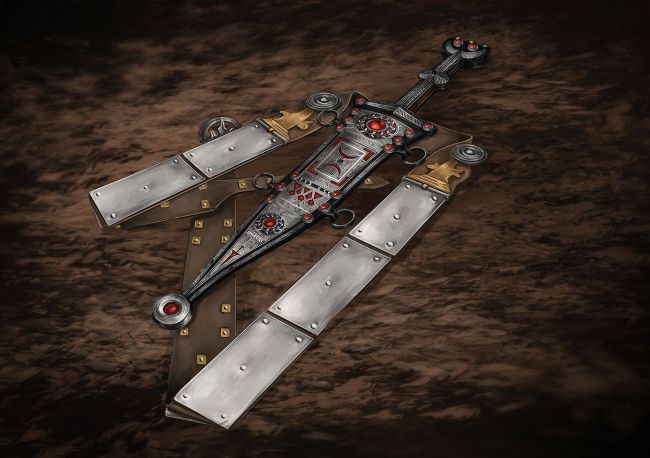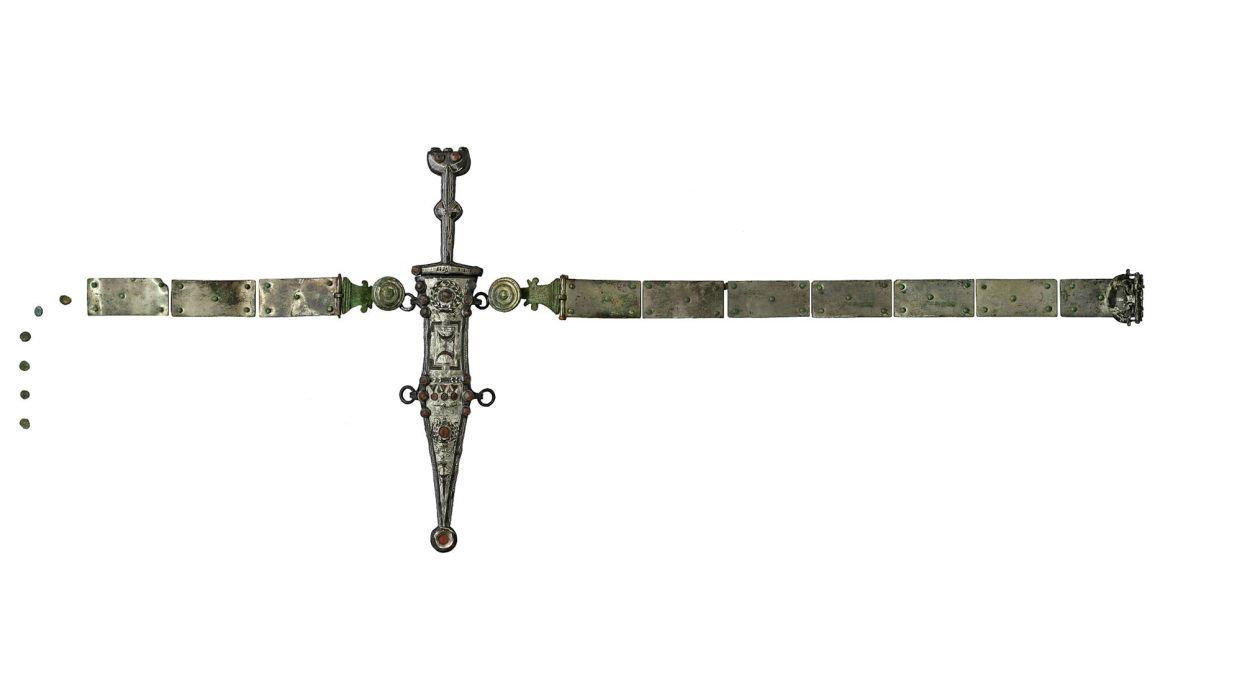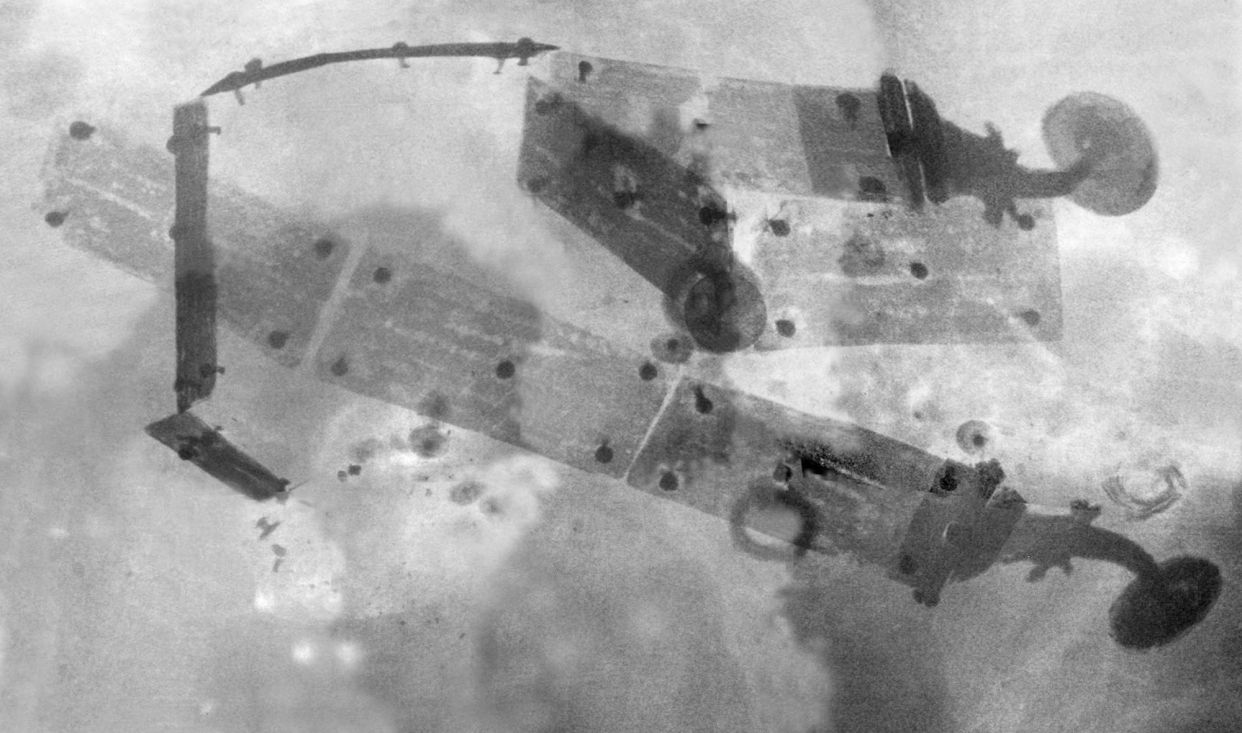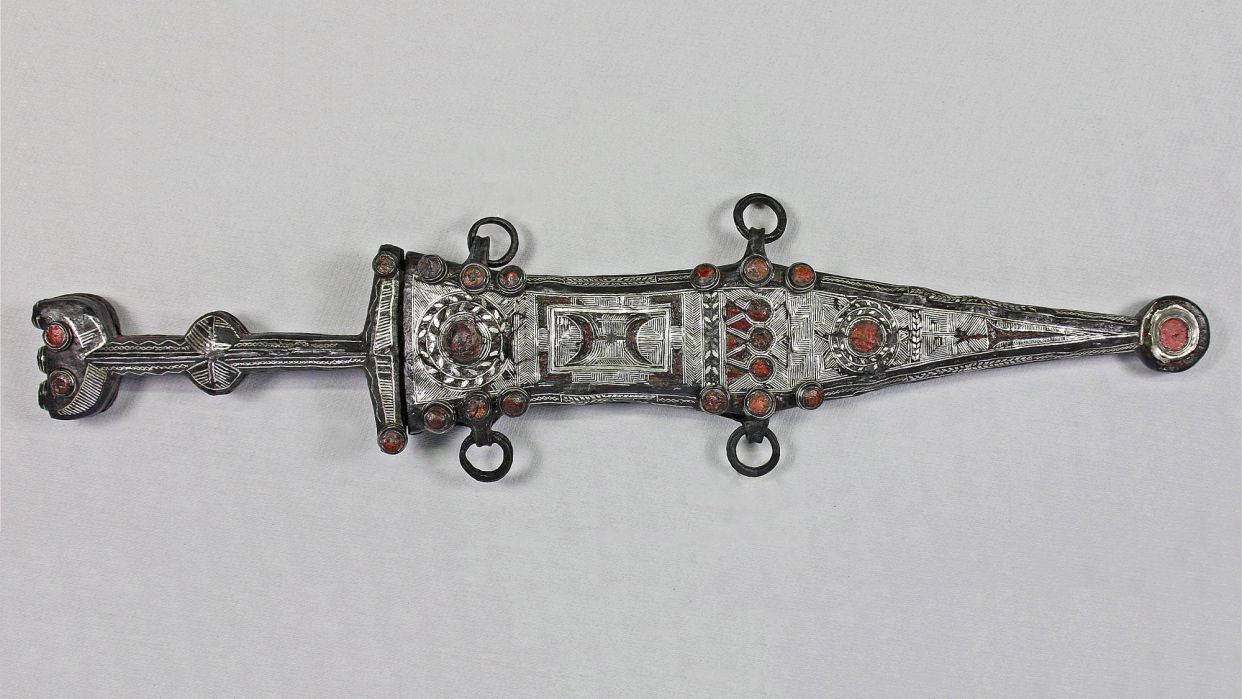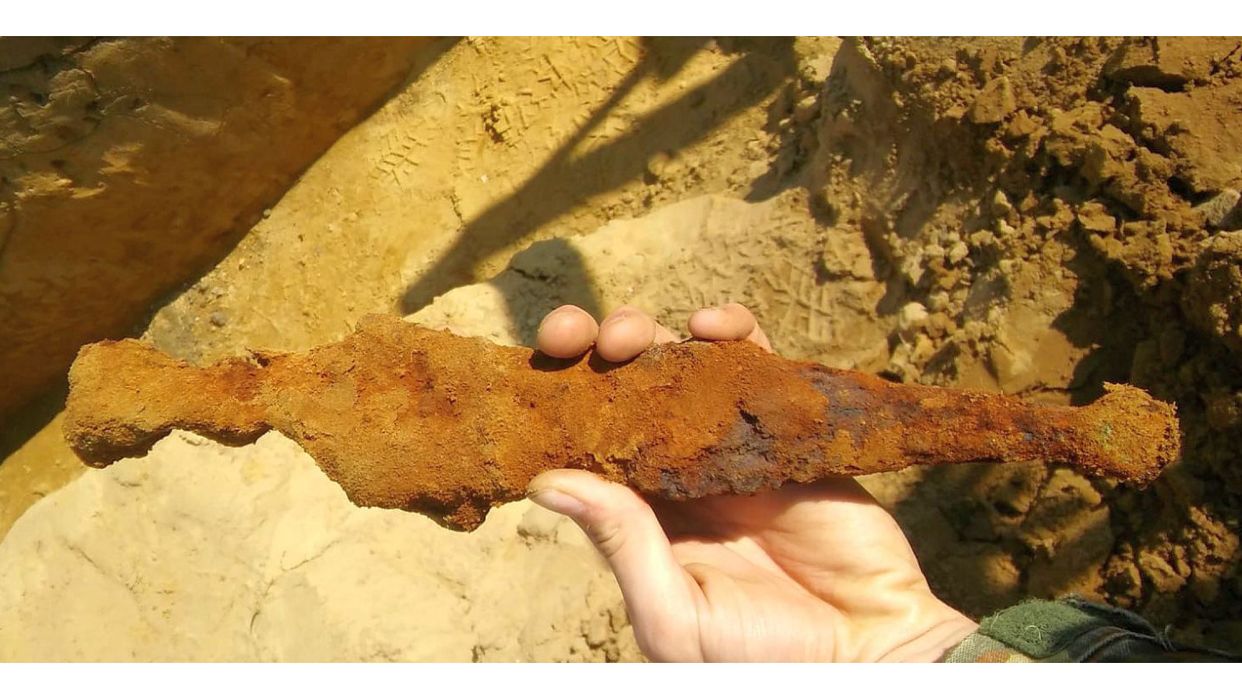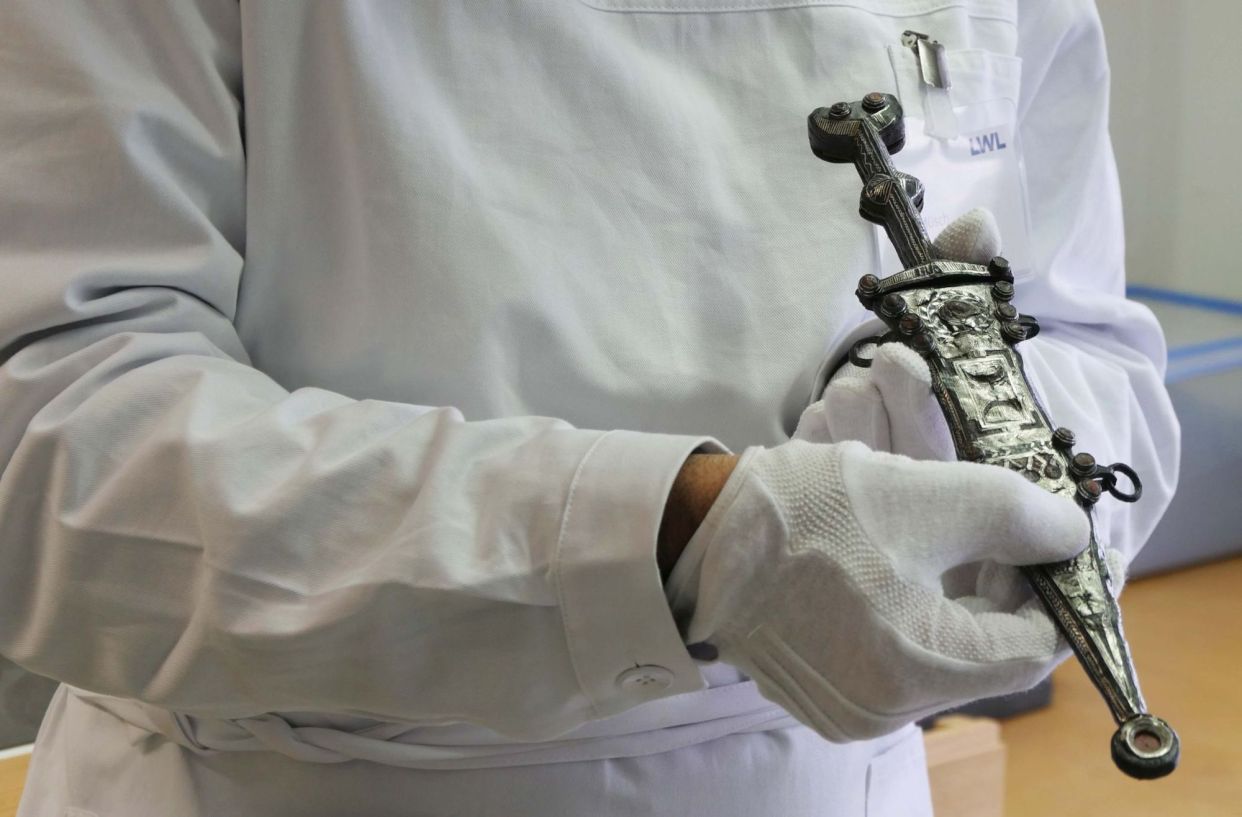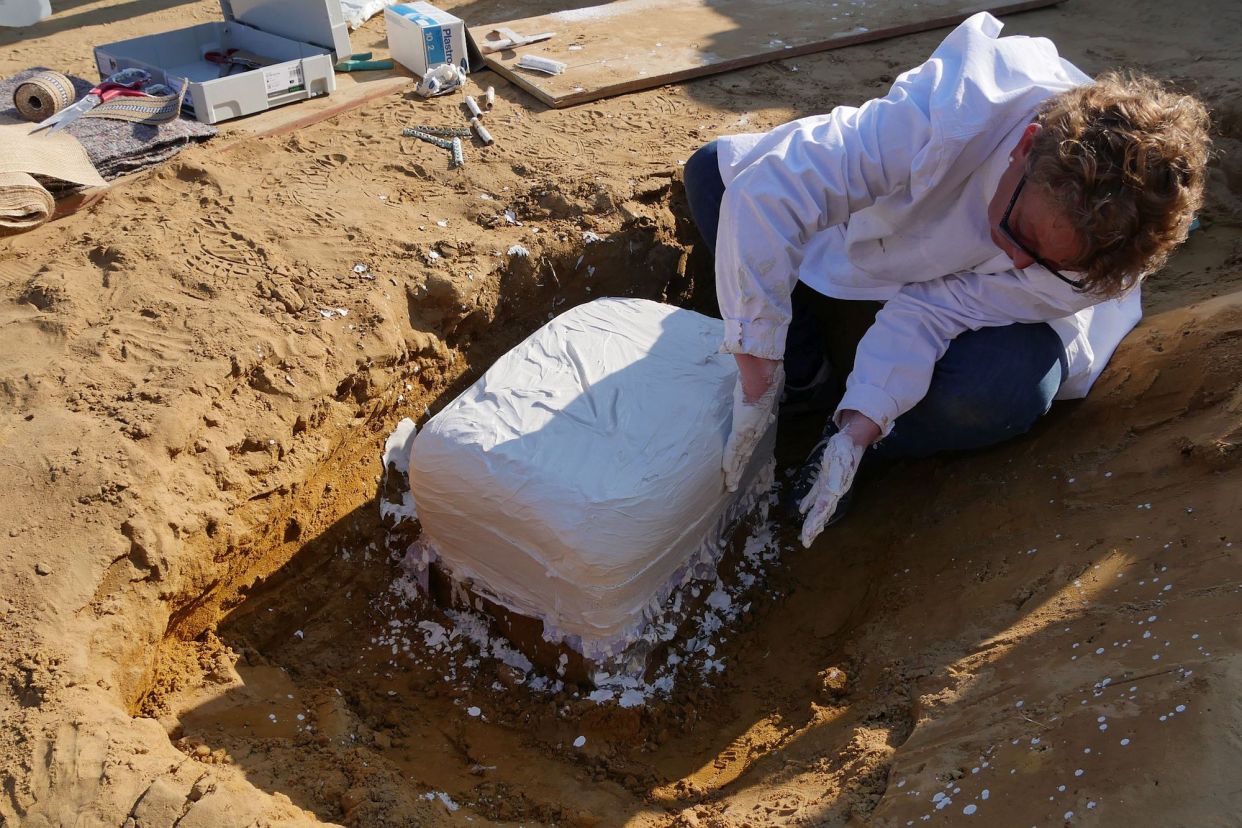Archaeologists in Germany were "lost for words" after the discovery of a 2,000-year-old silver dagger. The weapon was found in its sheath in the grave of a Roman soldier who once fought against the Germanic tribes.
The dagger was so corroded, it took nine months of sandblasting and grinding before the sharp, 13-inch-long (35 centimeters) weapon was restored, at which point researchers were easily able to remove it from its richly decorated sheath.
The find is unusual, given that "it was not the normal practice for Roman soldiers to be buried with their military equipment," said Bettina Tremmel, an archaeologist at the Westphalie Department for the Preservation and Care of Field Monuments in Germany, who specializes in the Roman Empire and took part in the excavation with the University of Trier.
An intern with the Westphalie department, 19-year-old Nico Calman, discovered the dagger and sheath, as well as the remains of the decorated leather belt, during an archaeological dig at Haltern am See (Haltern at the Lake), a town in the German state of North Rhine-Westphalia, in April 2019.
During the Augustan period, from 27 B.C. to A.D. 14, Haltern was home to a Roman military base, known as "Hauptlager," or "main camp." Archaeologists have known about the site since 1900, making the newfound discovery of the dagger all the more surprising, Tremmel said.
The Roman soldiers stationed at the base weren't terribly successful. Three Roman legions (large military units of about 5,000 men each) were wiped out during the defeat of the Roman general and politician Varus by the Germanic tribes in A.D. 9. Not too far from the base is a cemetery, where Roman soldiers and their families were buried.
It was there, in this cemetery, that Calman discovered the corroded dagger.
"The discovery of the dagger was emotional. We were lost for words," Tremmel told Live Science. "Imagine: Though thousands of Roman soldiers were stationed in Haltern over almost 15 years or more, there are only a few finds of weapons, especially complete and intact ones."
When it was first discovered, the corroded dagger and sheath looked like a chicken tender. (Image credit: LWL/Josef Mühlenbrock)
Tremmel immediately got in touch with restorers in Münster, who came to Haltern and excavated the "rusty lump" of a dagger from an earthen block, she said.
After the dagger was X-rayed, CT scanned and restored, archaeologists marveled at the dagger; its handle is inlaid with silver and decorated with rivets, and the iron blade has "deep grooves on either side of the midrib, a pronounced waist and a long tapering point," Tremmel said.
The iron sheath is lined with linden wood and decorated with red glass, silver, niello (a black mixture, often of sulphur, copper, silver and lead) and red shiny enamel. Rings on the sheath were used to hang the dagger from a belt, which was also found in the grave.
The dagger was likely wielded by a legionary infantryman, an auxiliary infantryman or an officer known as a centurion, Tremmel said. However, daggers weren't the main weapons used by the military.
"The dagger was a formidable weapon to have as a backup should the sword be lost or damaged," she said. "The penalties for loss of equipment were so severe, there was every incentive for a soldier to keep a tight grip on his helmet, sword and dagger."
It's a mystery why this individual was buried with a dagger. Perhaps the owner was a Celtic or German native. Unlike the Romans, members of those tribes were often buried with their weapons. Or maybe the person was Roman, but wanted the dagger to be included in the burial, Tremmel said.
The only other known Roman military belt, dagger and sheath discovery was in a small Roman military camp in Velsen, in the Netherlands. In that case, a Roman soldier was thrown into a pit during a military conflict with the Germans in 28 B.C.

